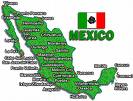America Spies on its Closest Allies: NSA Accessed Mexican President’s Email
"Tailored Access Operations" (TAO) Devises Special Methods for Special Targets.

That category includes surveillance of neighboring Mexico, and in May 2010, the division reported its mission accomplished. A report classified as “top secret” said: “TAO successfully exploited a key mail server in the Mexican Presidencia domain within the Mexican Presidential network to gain first-ever access to President Felipe Calderon’s public email account.”According to the NSA, this email domain was also used by cabinet members, and contained “diplomatic, economic and leadership communications which continue to provide insight into Mexico’s political system and internal stability.” The president’s office, the NSA reported, was now “a lucrative source.”
This operation, dubbed “Flatliquid,” is described in a document leaked by whistleblower Edward Snowden, which SPIEGEL has now had the opportunity to analyze. The case is likely to cause further strain on relations between Mexico and the United States, which have been tense since Brazilian television network TV Globo revealed in September that the NSA monitored then-presidential candidate Enrique Peña Nieto and others around him in the summer of 2012. Peña Nieto, now Mexico’s president, summoned the US ambassador in the wake of that news, but confined his reaction to demanding an investigation into the matter.
Now, though, the revelation that the NSA has systematically infiltrated an entire computer network is likely to trigger deeper controversy, especially since the NSA’s snooping took place during the term of Peña Nieto’s predecessor Felipe Calderón, a leader who worked more closely with Washington than any other Mexican president before him.
Brazil Also Targeted
Reports of US surveillance operations have caused outrage in Latin America in recent months. Brazilian President Dilma Rousseff cancelled a planned trip to Washington five weeks ago and condemned the NSA’s espionage in a blistering speech to the United Nations General Assembly.
The US surveillance of politicians in Mexico and Brazil is not a one-off. Internal documents show these countries’ leaders represent important monitoring targets for the NSA, with both Mexico and Brazil ranking among the nations high on an April 2013 list that enumerates the US’ surveillance priorities. That list, classified as “secret,” was authorized by the White House and “presidentially approved,” according to internal NSA documents.
The list ranks strategic objectives for all US intelligence services using a scale from “1” for high priority to “5” for low priority. In the case of Mexico, the US is interested primarily in the drug trade (priority level 1) and the country’s leadership (level 3). Other areas flagged for surveillance include Mexico’s economic stability, military capabilities, human rights and international trade relations (all ranked at level 3), as well as counterespionage (level 4). It’s much the same with Brazil — ascertaining the intentions of that country’s leadership ranks among the stated espionage targets. Brazil’s nuclear program is high on the list as well.
Read Complete article on Spiegel Online
http://www.spiegel.de/international/world/nsa-hacked-email-account-of-mexican-president-a-928817.html
Copyright Spiegel online 2013


